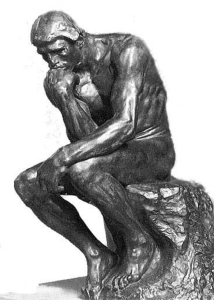
Here’s the truth, I am a front porch snob. My admission will not surprise many and will generally be met with relief. …Maybe he’ll stop talking about it…Not likely.
When I become ruler of the world, or better yet, president , I will require all new home construction to include front porches. Maximum setback from the street will be 50′. No hedges, fences or other obstructions to personal interactions will not be permitted. All decks, patios and other distractions from the front porch will be permitted only with binding commitment to prioritize front porch usage.
All new developments will be required to be neighborhoods designed for pedestrians.
Yes, I know it sounds un-democratic, but if it will solve our societal woes, why not?
Future editions of “So much to Think About” will include a “Front Porch View” segment.
“A critic is someone who comes onto the battlefield after the battle is over and shoots the wounded” unknown
Bird by Bird -Anne Lamott
Disagreeing
When we disagree on theology or politics, we need a category of, “I am not where you are on this issue but I can see why you would believe that and that is a reasonable position to take.”
Matt Redmond
Little lords
…there is no lordless place. Everyone serves. The only question is whom you serve. We moderns, however, in light of our political freedoms, tend to see ourselves a free agents, obedient to no one but ourselves. We do not serve, only command, even if that command is only over ourselves. We are world full of little lords.
Richard Beck
Chris Christie
Former New Jersey Gov. Chris Christie has recovered from his bout with the coronavirus, and he’s written about the missteps that led to his contracting it in the first place. “It is never comfortable to deliver real criticism that includes yourself,” he writes in a Wall Street Journal op-ed. “But it was a serious failure for me, as a public figure, to go maskless at the White House. I paid for it, and I hope Americans can learn from my experience. I am lucky to be alive. It could easily have been otherwise.”
Answer to the poor
The culture’s answer to the poor is to raise them to the middle-class through income and education. It is assumed that, somehow, poverty is like a disease and needs to be eradicated. The English held this idea quite strongly during the 18th and 19th centuries and urged the poor to leave England and go to America and Australia. It did not end poverty in England.
Fr Stephen Freeman
What young people think about Christians
…people between the ages of 19 to 29, they are now in their late 20s and mid 30s.
1) Hypocritical
2) The only thing Christians talk about is “getting saved” and could careless about anything else in the world.
3) Christians are homophobic, indeed they “hate homosexuals”
4) Christians mistake their brand of politics for Christianity
5) Judgemental
6) Christians are mean spirited people.
unChristian: What A New Generation Really Thinks About Christianity. . .And Why It Matters
The first word
What is the first word? Is it not love! In every, in any, situation the first word, the first response, the first reaction, the first deed is LOVE. As the rock theologian Scott Stapp sang,
“what would love do
If it were here in this room
standing between me and you,
what would love do?“
Bobby Valentine
An independent mind
An independent mind does its imperfect best to seek truth wherever it is found, including intentionally seeking out the best opposing arguments.
David French
Simplism
simplism.” …defined it as “the unambiguous ascription of single causes and remedies for multifactored phenomena.”
For the simplist, “just saying the right thing, believing the right thing, is the substance of victory and remedy.”
First, the solution is always clear and debate is unnecessary.
Second, the opposition is stupid or evil. If they can’t accept your remedy, they must be too dim to understand or too malicious to comply.
Third, objecting means siding with the enemy. There can be no middle ground.
Fourth, political norms do not matter. Simplist proposals are so legislatively and practically unworkable, they require bypassing rules.
The Simpleton Manifesto
If you could choose, what would you want your obituary to say?
Scott McKnight
Effective political peacemaking
effective political peacemaker displaying characteristics like:
Truthfulness – Respecting common facts of reality, and transparency, not deceptiveness
Trust – Respecting others, dependability, earning other’s respect
Tolerance – Forbearing with diversity and differences
Tenderness – Empathetic, compassionate, gracious
Toughness – Perseveres wisely with courage, and stamina, not as a childish bully but after the manner of a true civil servant.
Jim Abrahamson
Recommended listen
“What could produce a Soul that Shallow…?
A great introduction to Stanley Hauerwas
Still on the Journey







